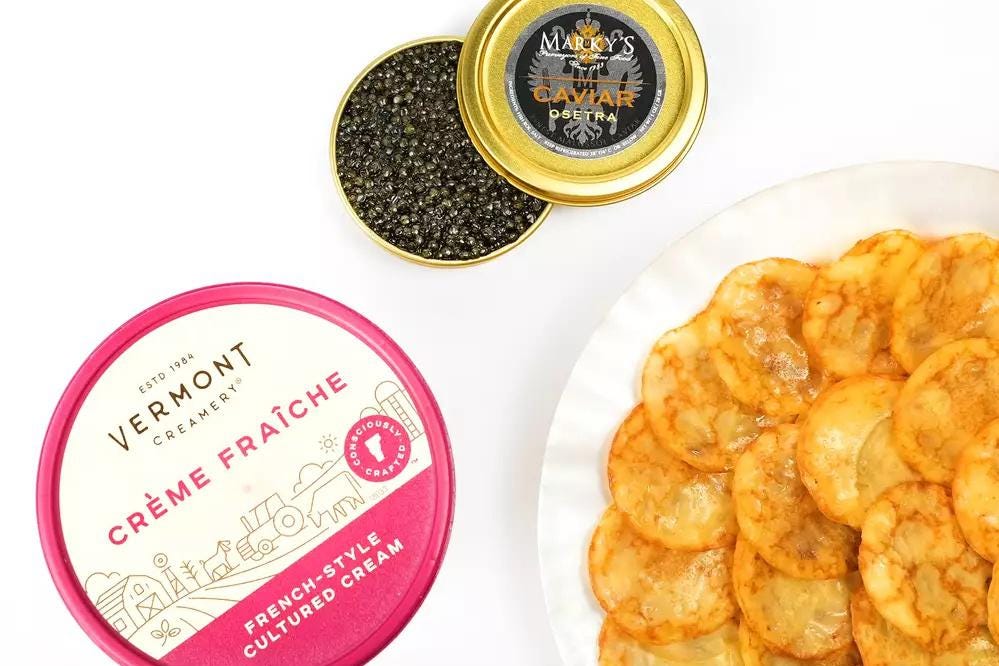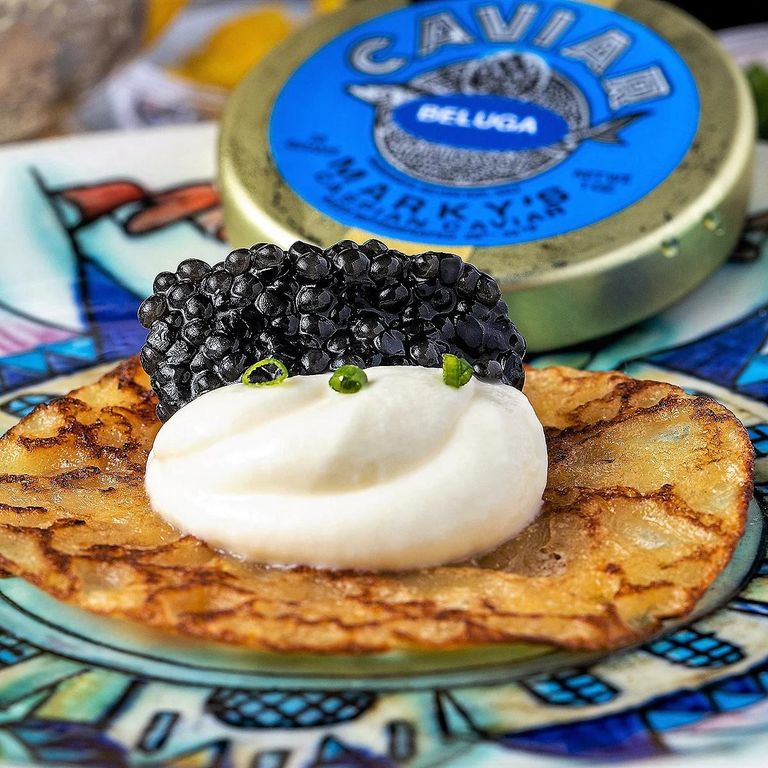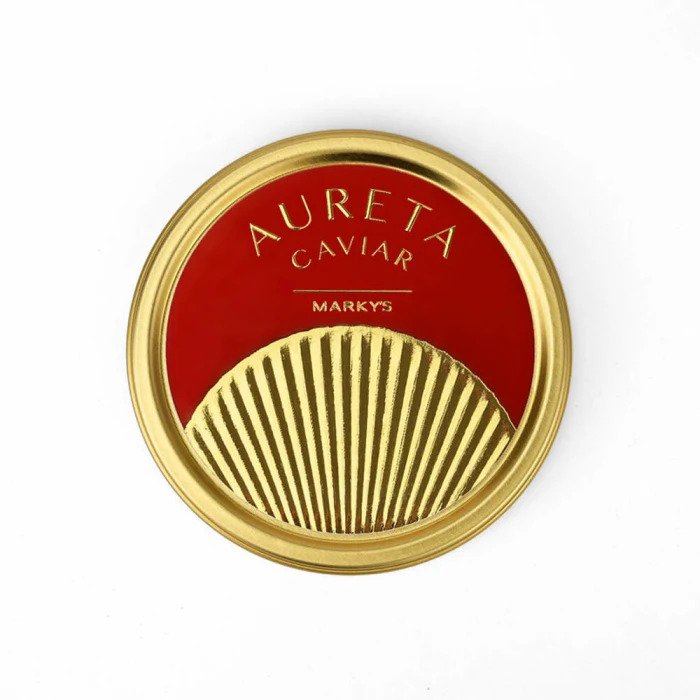Doing without beluga caviar to save the sturgeon
Category : Food Stories, Party Ideas, Recipes, Press Room |
Posted : Oct 6, 2005
By LANCE GAY
Scripps Howard News Service
October 06, 2005
American gourmands are going to have to find an alternative to their $1,700-a-pound beluga caviar after the U.S. government slams the door on importing the eggs of Caspian Sea sturgeon this month. .gif)

Once prized by Russian czars and French courtesans, the smoky, delicate eggs found in beluga sturgeon caught only in the Caspian Sea are fast disappearing.
On Oct. 21, the U.S. Fish and Wildlife Service says it will impose a ban on importing beluga caviar from the Caspian region, leaving gourmands bereft of the world's most expensive delicacy.
The Fish and Wildlife Service said it gave due notice of its actions to countries bordering the Caspian Sea - Azerbaijan, Iran, Kazakhstan, Russia and Turkmenistan - that it would ban caviar sales unless the countries agreed on a plan to save depleted sturgeon stocks.
Agency spokesman Ken Burton said the U.S. government might reconsider the ban if the countries come up with a workable plan for recovering the sturgeon. The ban applies both to commercial shipments of Caspian Sea beluga caviar and to any caviar that American tourists to the region bring back with them.
Environmental groups, which sought the import ban, said they are pleased. "If the beluga doesn't merit as being threatened, I don't know what else does," said Joey Brookhart of the Sea Food Choice Alliance. "I put the beluga on the same pedestal as elephants and African ivory."
Mark Zaslavsky, president of the Miami-based Marky's Caviar, said he is raising beluga sturgeon on a Florida fish farm that he launched in anticipation of the ban. He said the sturgeon are about three years away from being mature enough to produce caviar.
Zaslavsky said the U.S. government decision will only encourage a black market for Caspian Sea beluga caviar and less money for Russia's aquaculture industry, which has been growing replacement sturgeon.
"I'm not a supporter of the ban," he said. "When we were buying from Russia, for every kilo (gram) of caviar bought, they were releasing 100 (sturgeon) fry in the Volga River" where the sturgeon spawn, he said. He said banning imports means the Russian government won't have the money to continue the replenishment program, and so will result only in further depleting the Caspian Sea sturgeon.
The United States is the third-largest consumer of caviar in the world.
But Rick Moonen, chef and owner of the chic RM seafood restaurant at the Mandalay Bay Hotel in Las Vegas, said the quality of Caspian Sea imports varied so much that he stopped using it in his restaurant five years ago.
"There's been a lot of illegal trading and packing different items" in tins labeled as Caspian Sea caviar, he said, explaining the import didn't pass his taste tests.
Moonen said there are already American-farmed varieties that are just as good, and he said he's found a farmed trout roe that competes with Caspian Sea caviar in flavor. He says he uses caviar as a garnish and likes it with a farmed abalone cutlet, cooked lightly and served with sea-urchin butter. "That's a dish. Worth a trip," he said.
Moonen said caviar will be a niche market because customers expect to see it on a menu. It might carry a hefty price tag, "but then people are willing to pay $500 to play a round of golf, too."
Frank Chapman, an aquaculture researcher at the University of Florida, said the ban will encourage an expansion of sturgeon farming. In the last decade, scientists found ways of farming slow-growing, coldwater fish like the sturgeon, one of the "living fossils" that can be traced back to the age of the dinosaurs.
It takes 15 years for female sturgeon to be ready to develop eggs. Sturgeon can live up to 100 years and grow to almost 3,000 pounds, although larger fish are rare today because of over-fishing.
"We developed the technology to feed them well. As long as they've got food, they will grow just like in the wild," Chapman said. The other advantage of farming sturgeon is that the farms can guarantee a consistent supply of high-quality roe.
In addition to those in Florida, sturgeon farms are also flourishing in California, he said.














